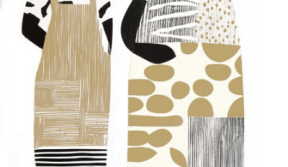Chocolate has been flagged as a sweet industry that’s acquiring a sour reputation for its pervasive use of forced and child labour. Over 109,000 children work under atrocious conditions in the cocoa industry of the Ivory Coast, and an estimated 10,000 of these children are enslaved. With Ghana and the Ivory Coast producing around 70% of the world’s cocoa beans, it is more than likely that each of us has consumed chocolate produced at the expense of a child’s freedom.
The good news is this: we do not have to help finance exploitation. There are plenty of ways we can resist partaking in the cycle of labour injustice as conscious consumers: through accessing Free2Work resources, thinking ethically while we shop, and demanding more accountability from corporations as a grassroots activist.
1. Seek out Free2Work: One educational tool for learning more about the story behind the barcode is the Free2Work brand scorecard. Brands are evaluated against a set of criteria: company’s policies, transparency and traceability, monitoring and training, and worker rights. The provision of this research to the public is intended to not only encourage smarter consumer purchases, but also to motivate companies to ensure activities within their supply chains are ethical. Scorecards and additional resources are available through Free2Work’s mobile application and on the free2work.org website.
2. Think ethical: When you shop this Valentine’s Day, avoid brands that Free2Work allocated a low or failing grade to, such as flowers from Personal Creations (F), Peoples Jewellers (D-), or Behr’s Chocolate (F). Instead, consider supporting high rated companies such as Equal Exchange (A-), Alter Eco (B+) or Divine Chocolate (A).
3. Demand more: At Free2Work, we believe that everyone has a role in the movement to ruthlessly execute strategies that directly result in companies exerting more effort in cleaning up their act. Last year, for example, 1-800-Flowers released its first ever Fairtrade certified collection after nearly 55,000 activists signed a petition urging them to protect exploited workers. The impact of consumer power was also made visibly clear when long-resistant Hershey’s recently pledged $10 million to using a third-party certification system to monitor its sustainable growth of cocoa without the use of child or forced labour; creating long-term investments in education, health, and economic opportunities in cocoa-producing villages; and otherwise improving their trade.
Committing to these actions is where change happens. It happens when consumers “vote with their dollars” by purchasing fair trade chocolate at Valentine’s Day instead of products that aren’t ethically sourced. It is when consumers demand more transparency from corporations, lobby them to change their sourcing policies, and encourage a total commitment to new ethical standards that we get one step closer to corporate accountability … and to justice.
On February 14, when we buy bouquets of roses for our Valentines, will we consider if the flowers were picked by forced laborers? Will we take into account the hazardous work and exposure to dangerous chemicals during the mining process to produce that pair of diamond earrings … before we purchase them? Will we choose the more ethical alternative instead of purchasing chocolate that compromised the freedom of a child?
This Valentine’s Day, remember that your purchase is your advocacy.
Katie Bergman is a fellow at Free2Work, a project of the Not for Sale Campaign and the International Labor Rights Forum.

